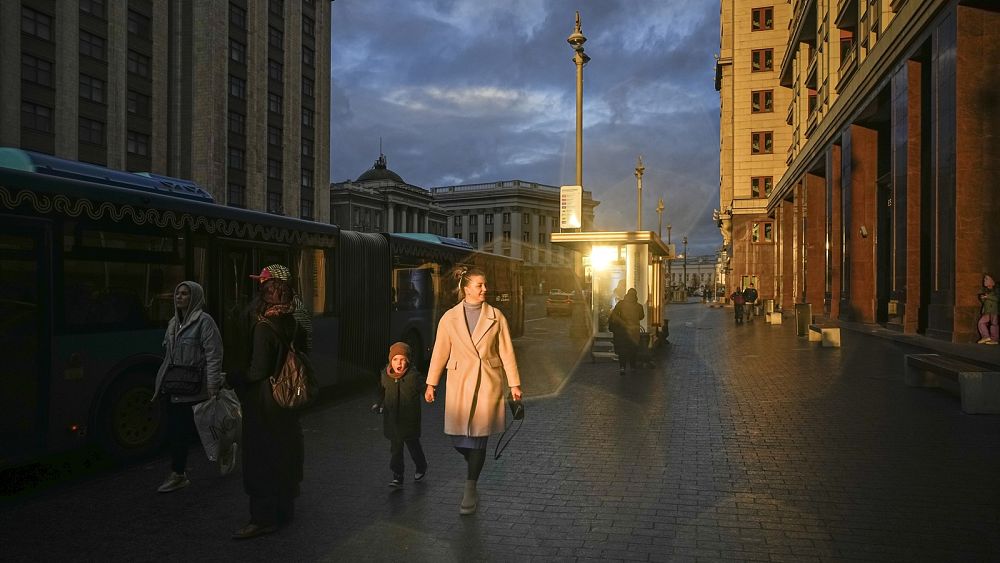
More than 550 international companies, many from Europe, are still doing business in Russia to a lesser or greater extent, defying public pressure to pull out of the country following the invasion of Ukraine, according to a new report by Yale University.
Out of these, 223 companies are considered to be operating «business as usual,» including prominent firms from Italy (Boggi, Benetton, Calzedonia), France (Clarins, Etam, Lacoste), Germany (Siemens Healthineers, B. Braun), and the Netherlands (Philips).
The «business as usual» list also features some well-known American firms, like Tom Ford, Tupperware and TGI Friday’s, as well as numerous Chinese enterprises, like Alibaba, Tencent and ZTE, and air passenger carries, like Emirates Airlines, Egyptair, Qatar Airways and Turkish Airlines
The numbers are compiled and regularly updated by an expert team from Yale University, which has been tracking corporate announcements since the war broke out in February 2022.
In total, the Yale database features 1,389 companies from all over the world, split into five categories:
- Digging in: 223 companies that are still doing «business as usual,» including the aforementioned firms.
- Buying time: 162 companies that have postponed future operations but continue doing «substantive business» in Russia.
- Scaling back: 170 companies that have scaled back some «significant» operations but continue others.
- Suspension: 493 companies that have temporarily curtailed «most or neatly all» operations in Russia but maintain the option of earning residual financial returns.
- Clean break: 341 companies that have «totally» halted engagements in Russia.
Put together, the three worst-performing categories – digging in, buying time and scaling back – add up to 555 companies, making up almost 40% of the database.
Among the companies still «buying time,» there are multiple renowned firms from both the EU and the G7, such as AstraZeneca (UK), Barilla (Italy), Bayer (Germany), BlaBlaCar (France).
Engie (France), Giorgio Armani (Italy), ING Bank (the Netherlands), Merck (Germany), Nestle (Switzerland), Red Bull (Austria), Total Energies (France), Unilever (UK) and Yves Rocher (France) are some of the European companies also included in that category.
The ones who are in process of «scaling back» features easily recognisable names like Adobe (US), Allianz (Germany), Google’s parent company Alphabet (US), Bosch (Germany), Coca-Cola (US), Duolingo (US), Eni (Italy), Ferrero (Italy), JPMorgan (US), Microsoft (US), Ørsted (Denmark), Pirelli (Italy), Spotify (Sweden), Toyota (Japan) and Vattenfall (Sweden).
It’s unclear how much money these companies are making through their Russian operations, given the country’s economic slowdown and the trade disruption caused by Western sanctions.
However, their continued presence in Russia appears to undermine the political unity of Western countries, who have for months been trying to slash revenues that can bankroll the Kremlin’s war machine.
«Our sanctions per se do not oblige companies to leave Russia, many decided to go on their own,» a European Commission spokesperson told Euronews, in response to the Yale findings.
«Those who are staying are not necessarily violating the EU sanctions – as long as they do not engage in sectors or with entities which are under sanctions.»
According to the Yale team, 493 international firms remain in the limbo of «suspension,» which means they have halted or blocked the majority of commercial activities, sales, shipments, flights, bookings, financial transactions and other services in relation to Russia, but without completing severing ties with the country.
Among the 341 companies that have totally pulled out of Russia, we can find Accenture (Ireland), Aldi (Germany), Asda (UK), Deloitte (US), Deutsche Bank (Germany), Equinor (Norway), Heineken (the Netherlands), IBM (US), Ikea (Sweden), Lufthansa (Germany), McDonald’s (US), Mercedes-Benz (Germany), Netflix (US), Nike (US), Nissan (Japan), Nokia (Finland), Renault (France) and Vodafone (UK).
This group also features Eurovision and various sports organisations that have banned Russian nationals from participating in their competitions.
Yale updates the database by analysing a variety of sources of information, such as government regulatory filings, tax documents, company statements and media reports, as well as a network of company insiders and whistle-blowers.
